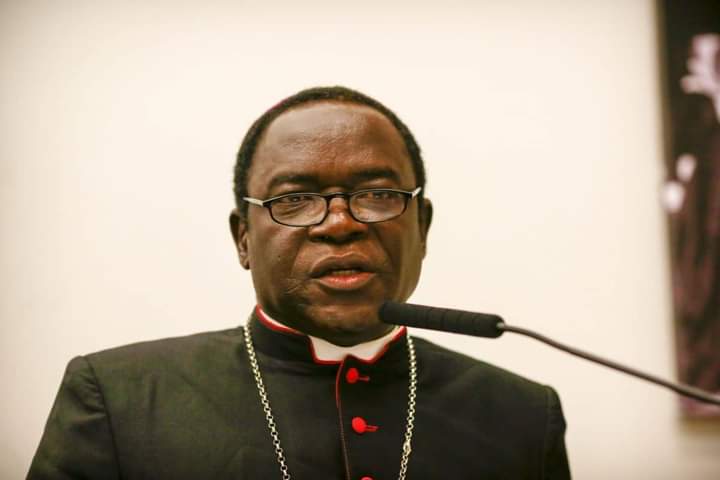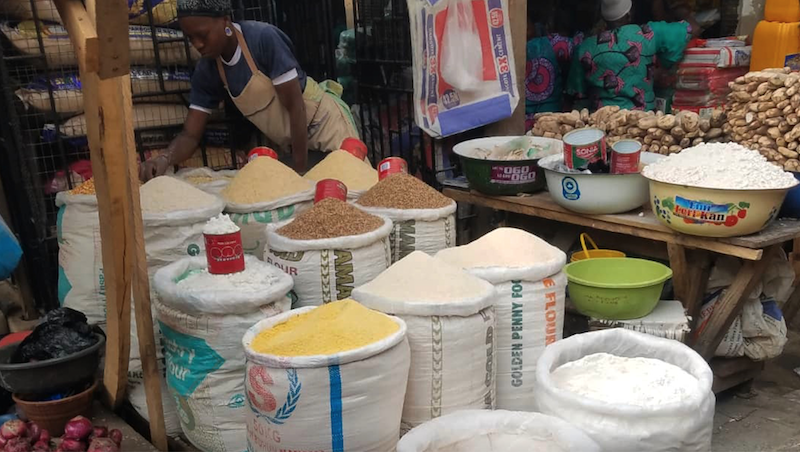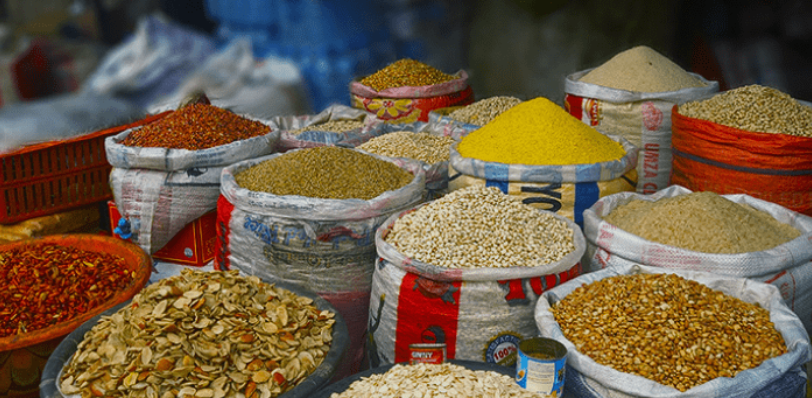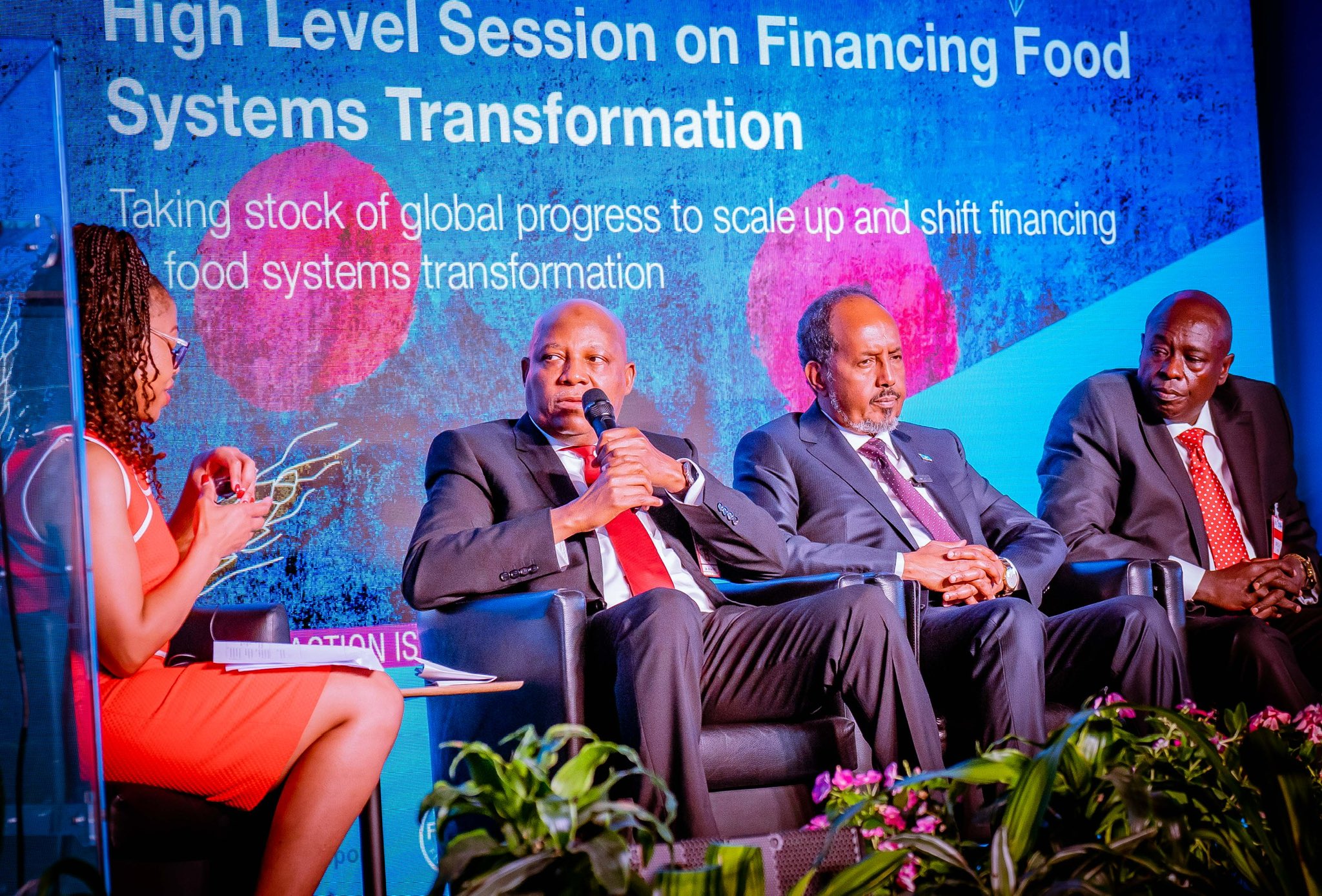Against the run of play, Governor Mohammed Umaru Bago of Niger State ruffled feathers with his speech at the 2023 annual Leadership Newspaper Conference and Awards held in Abuja last week. This speech was an instant hit online and trended at different times on both Instagram and X (Twitter).
Governor Bago’s arguments in his speech can be summarised in three ways: First, as a nation, Nigeria cannot achieve economic freedom and eradicate poverty without being productive, especially in agriculture, where we have a comparative advantage.
Second, it is indefensible for a nation with an estimated arable land of 40 million hectares and a reasonable youth population to accept grain donation in whatever guise from war-torn Ukraine; and third, because of natural and human endowment, Nigeria can feed the people and export the excess to other countries.
There is nothing Governor Bago said that we do not already know, but as a nation, we have egotistically refused to accept these truths nor act on them. These arguments are significant because they were made by a serving Nigerian governor, a member of the powerful club that has enjoyed the monthly sharing arrangement called Federation Account Allocation Committee( FAAC).
Governor Bago ended his speech by throwing a challenge against the Federal Government’s promise to deploy and distribute 42,000 MT of grains from the strategic reserve, that the Niger State Government will deliver and distribute 100,000 MT of grain by June 2025.
Make no mistake about it, Governor Bago was not just exercising his bragging right; he was marketing his strategic plan to rescue Niger State from the sharing mentality, economic doldrums, poverty, unemployment,and criminality.
A quick review of what the Niger State Government is doing to accomplish the vision of food sufficiency might give us a better perspective.
Niger State, over the next year, plans to cultivate one million hectares of farmland, inclusive of a 50,000 hectares fully irrigated food production hub. Over 500 large-capacity tractors, 1000 pieces of irrigation and agricultural equipment, 2000 power tillers for smallholder farmers, 2000 petrol water pumps, 3000 solar pumps, and 5000 tube wells to support dry season farming have been delivered.
Besides, the government has acquired about 100,000 bags of fertilisers, plus herbicides, pesticides, and fungicides have also been obtained. Governor Bago’s commitment to this agricultural revolution in Niger State is self-evident and realistic.
Governor Bago’s challenge in his speech and what he is doing in Niger State is founded on solid historical precedence and economic reasoning. Before we discovered crude oil in commercial quantity and started depending on it as a mono-product, which made us lazy in thinking, diminished the value of hard work, and elevated monthly sharing of FAAC to a religion of sorts, sub-national governments (regional governments) relied solely on agriculture to develop the regions.
Some of the iconic infrastructure projects were executed with groundnut, cocoa and palm oil money. The choice of agriculture as an engine of economic growth was because of its multiplier effect. It has an excellent capacity to create employment and wealth.
Those reasons are still valid today. The neglect of agriculture and the food production supply chain led Nigeria into many of the economic malaise we are suffering today – from food insecurity, unemployment, criminality and poverty to a dearth of foreign exchange. Some countries that were our contemporaries developed their food production and supply, which became the mainstay of their economy.
Governor Bago’s speech represents a significant shift in thinking in recent times, giving some hope. Some state governments have started making efforts towards creating a clear vision of increased productivity, providing an enabling environment for such productivity, and building on this productivity to improve their internal revenue generation.
These governors are using food security in Nigeria as fuel to engage in food production in a way that has not been done in Nigeria for a long time. They understand that the question of food security in Nigeria starts with food production, then food processing, food distribution and food commercialisation, both locally and abroad.
But first and foremost, ramping up food production is the first step in tackling the food insecurity conundrum. It is a matter of how much food Nigeria produces. It is determined by what individual states bring to the table. In that regard, the message of self-reliance from the Niger governor is on point. Production of food for local consumption and export is vital for Nigeria’s economy because it solves two significant problems that have recently thrown Nigeria’s economy into a wild spine – food inflation and scarcity of foreign exchange.
Increasing our productive capacity and, by extension, enhancing our internally generated revenue is imperative. States waiting to go to Abuja to pick up peanuts monthly is not sustainable.
States, by the design of the 1999 Constitution, ought to be growth centres – actively participating in production and creating the institutional framework, structures, and environment to make this possible.
However, only a few states have taken advantage of this vantage position to lift their people out of poverty. Most states function as salary payment centres. This must change if any meaningful development strides will take place in Nigeria. The era of states becoming a leech on the centre, milking the Nigerian state dry, is over. Every state must look inward and decide the best path to economic progress.
Each state must have the mentality that if the tap of crude is switched off today, how will it become sustainable? This calls for chief executive officers of the states (governors) to wear their thinking caps now, holistically review their productive comparative advantages, develop an audacious strategic plan, and execute such to achieve a clear vision for the state. Anything less than this is not acceptable to Nigerians.
The idea that consistent productivity at the sub-national level is one critical ingredient among many ingredients that will get us out of the economic mess we found ourselves in is more germane today than ever.
The significance of this statement is that state governments are responsible for figuring out the best strategy to make their states viable and contribute to wealth creation and employment generation. Each state must tap into their comparative and competitive advantage to contribute to the national food basket.
A strategy for economic viability will require dealing with internal security issues coupled with medium- and long-term planning. The most crucial short-term action critical to agricultural production presently is to provide security and a safe environment for such economic activities to occur. The states must make farming safe and allow farmers to return to their farms without fear of attacks from bandits or terrorists. Insecurity is a great headwind against agricultural productivity.
Agro-industrialisation is crucial in massive food production and increases local revenue and foreign exchange generation. We are embracing new agro-technology and jettisoning old agricultural practices that have provided suboptimal productivity over the years.
This is also a time to bring real entrepreneurs into the food production and processing value chain. State governments should leverage various public-private partnership investments available to bring in seasoned investors and ‘agropreneurs’ to work together to put in place modern mechanised agricultural facilities for the mass production and processing of food.
Recently, I had a long discussion with the Governments of Edo, Jigawa , Nasarawa and Akwa Ibom State who are leading in this new PPP arrangement and are collaborating heavily with the private sector (both local and foreign) to produce food for all and revenue to the state and our economy. I could feel a new mindset away from “sharing mentality”.
Still on Agro-Industrialisation,Agricultural exports accounted for about 90% of Nigeria’s foreign exchange earnings in 1960. In quarter one of 2023, three products alone, Cocoa seed, sesame, and cashew seed, even without maximising our potential, gave the country N297billion. In 2022, Malaysia’s gross domestic product from palm oil export was estimated to be 36 billion Malaysian ringgit (approximately USD 8 billion).
Governor Bago has thrown an open challenge to the Federal Government and his fellow state governors. There is a need for constructive engagement and healthy competition around subnational food productivity.
Most importantly, the food imperative allows some states to improve their domestic revenue situation. Agricultural productivity has become an economic lifeline for the states, especially in the north. Kofi Annan argued that “Food security is not only a moral issue but also a strategic one: without food, people have only three options – they riot, they emigrate, or they die. None of these are acceptable options.”
The fight against poverty, unemployment , hunger and malnutrition is one of the most significant challenges of our time, and it’s a challenge that can be won in Nigeria. Nigeria can work towards achieving food security applying the essential spirit of Bago’s challenge. Quality and affordable food is the fundamental to Nigeria’s development. We must take care of the basics before travelling to the moon. Nigeria’s development hinges on this!









